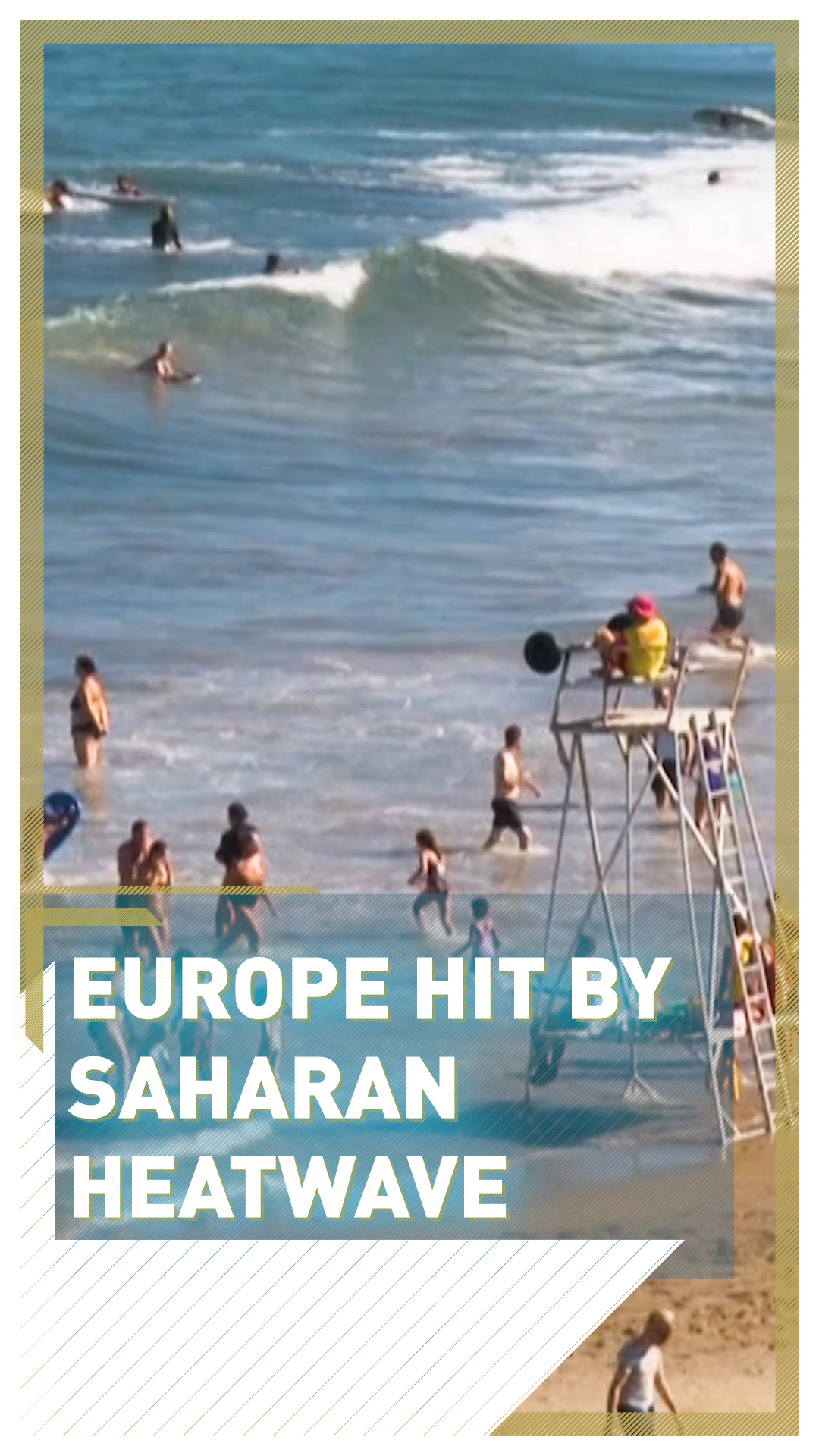02:29

A second heatwave has hit Europe in the space of a week and experts have warned that temperatures will continue to rise across the continent in the years ahead.
Temperatures in the UK, Spain and France could reach a sizzling 38 degrees Celsius this weekend, with the hot spell expected to last for up to a week.
The World Meteorological Organization (WMO) says the scorching heat has been caused by a stream of hot air blown across Europe from North Africa.
Laura Paterson, a WMO meteorologist, told CGTN Europe: "At the moment, there is extreme heat developing across large parts of Western Europe and this is related to a buckling of the jet stream.
"Across the eastern Atlantic, the jet stream is diving south and then coming further north again and that's dragging very warm, very hot air up from close to northern Africa, up northwards, across Spain, across France and heading into parts of the UK."

Thousands of people flocked to Brighton beach in southern England as temperatures soared to 37 degrees Celsius on Friday. /AFP
Thousands of people flocked to Brighton beach in southern England as temperatures soared to 37 degrees Celsius on Friday. /AFP
A report published by the Met Office in June predicted that temperatures could reach 40 degrees Celsius in the UK on average every three to four years by the end of the century, and Paterson says there is growing evidence that climate change is the cause.
"Every year, we do tend to see these very hot spells across parts of Europe but we can't deny the underlying signature of climate change as well. Over the past few years, we've seen a succession of heatwaves affecting Europe, starting in 2003, also 2010, 2015, 2017 and 2019.
"Last year, we had a couple of very hot spells across parts of Europe, where we saw record-breaking temperatures, many countries experienced record-breaking temperatures across Europe."

In Bordeaux, France, locals cooled off in the water mirror, with temperatures hitting a high of 36 degrees Celsius. /AFP
In Bordeaux, France, locals cooled off in the water mirror, with temperatures hitting a high of 36 degrees Celsius. /AFP
If temperatures do continue to rise, then there is a growing fear that Europe could face a health crisis, with several countries, such as Spain, having already experienced water shortages following extreme periods of heat.
"Heat is almost a bit of a silent killer," added Paterson. "At the moment, public health is already stretched and there is definitely a concern that our infrastructure in parts of Europe really isn't set up to have these kinds of temperatures.
"Many parts of the UK don't have air conditioning in the offices or the infrastructure and I think there's definitely going to be an increasing risk to human health, because we're just not set up for having such hot conditions."
Video editing: Sam Cordell | Producer: Alec Fenn